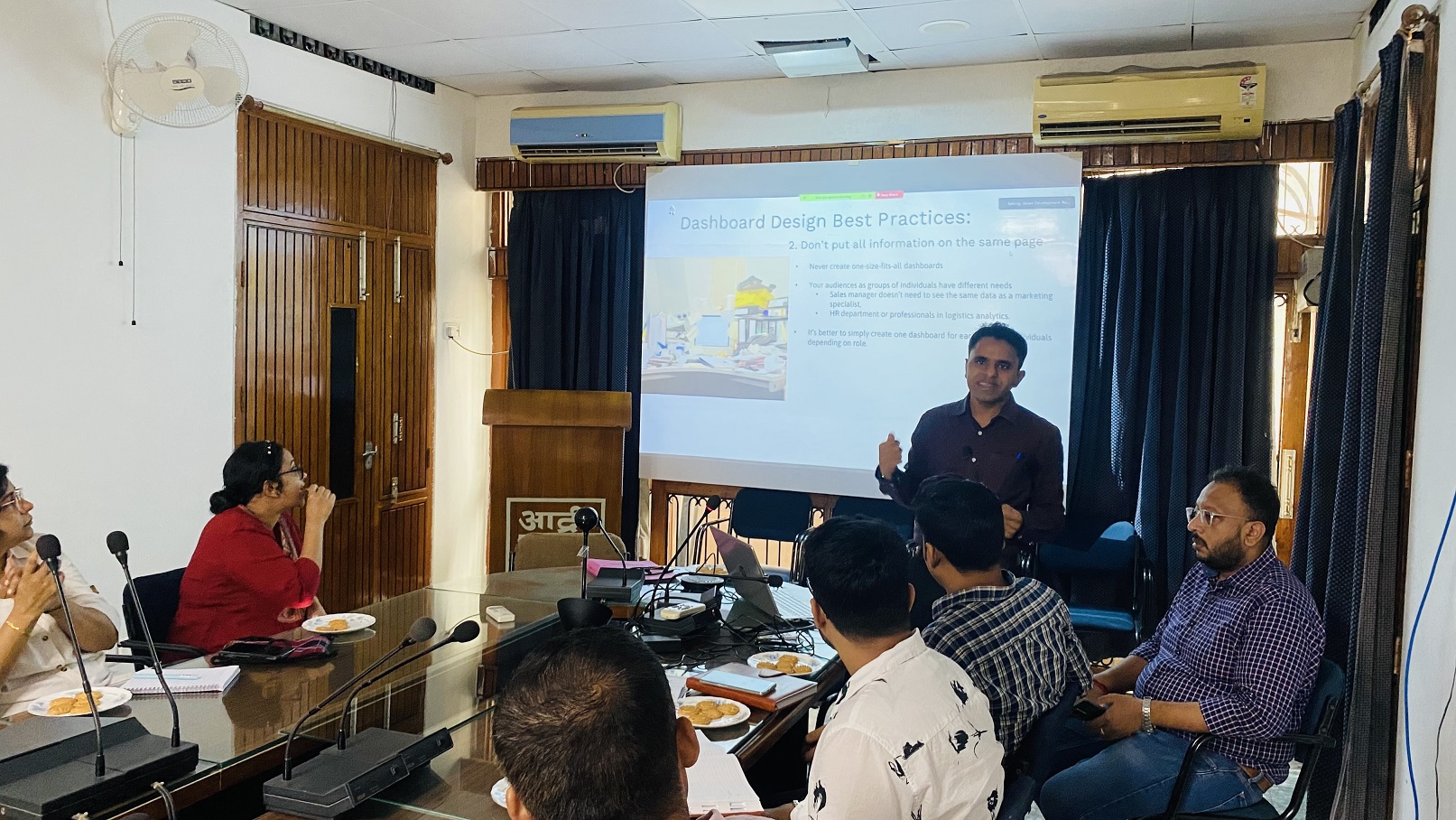Events of CSEC

Speaker : Dr. Mayank Agarwal, Assistant Professor, IIT Patna
Abstract: Dashboards are typically dynamic, real-time, and adaptable. Allocating resources to construct a dashboard is the greatest expense. The interface requires minimal human intervention thereafter, while the benefits continue to accrue. These dashboards are largely intuitive, so interpreting them does not require a rocket scientist. This reduces training costs so that resources can be allocated to more crucial areas. Digital dashboards not only enable you to hone in on the insights that matter most to your business, but they also provide an interactive visual representation that facilitates quicker, more informed decision-making and the discovery of invaluable new insights.
Speaker: Dr. Mayank Agarwal did his B.E in Information Technology from Sardar Patel Institute of Technology, Mumbai. He completed his Ph. D in Computer Science and Engineering from Indian Institute of Technology Guwahati. His specialization includes 802.11 Wi-Fi network security, computer networks, frame capture & analysis, packet injection, trace analysis. He did his Post-Doctoral Research at Ben Gurion University, Israel, where he worked on Malware analysis. He is also working in applied areas of machine and deep learning into interdisciplinary areas. He joined the Department of Computer Science and Engineering, IIT Patna, as Assistant Professor in July 2018. Dr. Mayank has undertaken various automation tasks at IIT Patna.
Patna. September 04. We live in a data-driven world and data is the new oil which is a key for government to formulate policies nowadays. Data on key performing indicators can be accessed through interactive dashboards. Dr. Mayank Agarwal of IIT, Patna expressed this view in a talk titled “Advantages of Data Dashboard in Policy Making”. This talk was organized by the Asian Development Research Institute (ADRI) today.
Emphasizing on the relevance of dashboards, Dr. Agarwal said dashboards allow users to monitor and analyze information in a centralized and easily understandable format.
Dr. Agarwal pointed out that one can understand complex information easily on a real-time basis through dashboards which can allow one to quickly glance through data in a visual format using charts, graphs, tables and other visual representations. This is really critical in following trends and developing deep insights on any issue, which is a critical factor in policymaking. Data dashboards consolidate information from multiple sources at a single centralized location. He discussed different formats of data dashboards and key aspects for which one needs to be careful about to secure data.
Dr. Ashmita Gupta, Member-Secretary, ADRI chaired the session. Participants attended the talk in-person as well online.